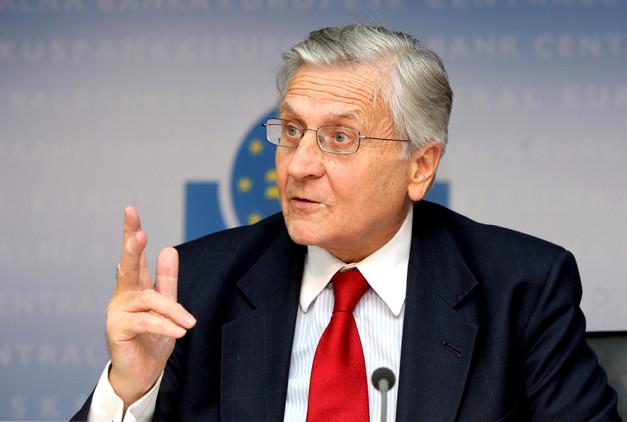
June 16 -- European inflation accelerated to the fastest pace in more than a year in May as surging energy costs and a weaker euro made imported goods more expensive across the 16-nation region.
Euro-area consumer prices rose 1.6 percent in May from a year earlier after increasing 1.5 percent in April, the European Union statistics office in Luxembourg said today. That s the fastest inflation since December 2008 and in line with an estimate published on May 31. Labor-cost growth accelerated to 2.1 percent in the first quarter from a year earlier from 1.7 percent in the fourth quarter, a separate report showed today.
The euro s 14.5 percent drop against the dollar this year is pushing up inflation just as rising energy prices hurt consumers purchasing power. European Central Bank President Jean-Claude Trichet said on June 10 that inflation might further accelerate even with the euro region s economy seen expanding at only a moderate pace this year.
It s mainly energy prices driving inflation at this stage, said Klaus Schruefer, an economist at SEB AG in Frankfurt. We could see an acceleration toward 1.7 percent in July, but there are hardly any price pressures overall.
The euro was little changed against the dollar after the data, trading at $1.2294 at 10:02 a.m. in London, down 0.2 percent on the day.
Alcohol, Tobacco
Consumer prices increased 0.1 percent from April, when they rose 0.5 percent, today s report showed. Prices for alcohol and tobacco increased 4.4 percent from a year earlier, while energy costs rose 9.2 percent, today s release showed. Prices for clothing, household equipment and hotels also rose.
The region s core inflation rate, which excludes volatile energy and food costs, held at 0.8 percent in May.
The ECB on June 10 raised its inflation forecast for next year to about 1.6 percent from around 1.5 percent. In 2010, consumer prices may rise around 1.5 percent on average, the Frankfurt-based central bank forecast. The euro-area economy may expand around 1 percent this year, it said.
With rising unemployment eroding consumers willingness to spend and governments cutting budget deficits, a recovery is already showing signs of weakening. In Germany, Europe s largest economy, investor confidence fell more than economists forecast in June, data showed this week. European economic confidence also declined in May.
The euro s drop has helped support economic expansion by making exports more competitive abroad just as the global recovery gathers strength. Lanxess AG, Germany s largest publicly traded specialty-chemicals company, on May 28 reiterated its outlook for a significant earnings gain this year on reviving demand in Latin America and Asia.
We are certain that the crisis has not been overcome, Lanxess Chief Executive Officer Axel Heitmann said on that day. But we are making good progress.
Related News
- Cipla Targets $19 Billion-a-Year Roche, Amgen Drugs
- DSM will continue its innovation strategy of combining biotech and material science
- Former Rohm and Haas CEO Raj Gupta sets his sights on more chemical deals for New Mountain Capital
- The Middle East has plans to become a major plastics processing centre





